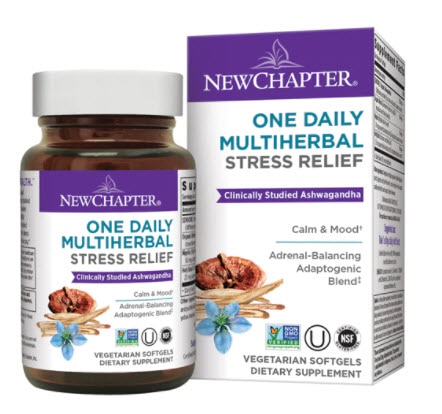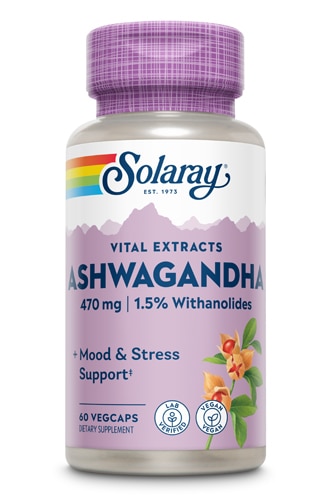One-third of Americans turn to alternative medicine on a regular basis—data that serves as another reminder that people are continually reaching for natural health solutions.
And yet, mistakes are rife when it comes to one of the most prevalent forms of alternative medicine: Taking vitamins and
herbal supplements. Here are five errors people commonly make when supplementing—and five ways to rectify them.

How to Take Vitamins Properly
1. Don't fall into the mindset that supplements are a panacea
It’s a Jetsons scenario: You take a fistful of supplements on a daily basis—I once had a man come into my office with an entire suitcase of the pills he was taking—and feel glad for having all of your health bases covered.
A supplement, however, is just that: It’s meant to
supplement, or complement, an already-healthy and wholesome lifestyle. Wellness is a reflection of the choices we make, big and small, every single day, from getting
adequate exercise and a
full night’s rest to eating a diet of fresh fruits, vegetables, lean protein and whole grains.
While a supplement may help fill in nutritional gaps, the greatest pharmacies on Earth exist on the farm and in grocery stores. In other words, popping a pill should not be an excuse to follow a poor diet, or consider other lifestyle changes—such as
coping smartly with stress—unimportant to health.
The fix: Assess your diet and lifestyle with a clear eye. Where is there room for improvement? Eating a diet rich in whole, organic foods may require more work than swallowing a supplement, but the benefits will be abundant, while small shifts—even drinking more water—can enhance your health. And if you’re taking supplements to deal with ongoing fatigue, know that you ought to see your doctor for any underlying health issues.
2. Don't purchase products without conducting research
One of the biggest mistakes people make is assuming that, just because a product is natural, it may not have a harmful impact. Several herbal supplements can cause adverse side effects, especially when you’re not taking the appropriate dosage. Others still may contain deleterious fillers, such as talc and food coloring, or only a tiny amount (or none at all) of the herb it’s purporting. Some may cause an allergic reaction.
Further, while dietary supplements are moderated through various controls and regulations, they are not pre-approved by the FDA—making it all the more crucial that you conduct your research.
The fix: To ensure your herbal supplement is safe and efficient, go with a
reputable brand that follows FDA guidelines and has a GMP stamp of approval, read the product labeling, and inquire with your health care professional about recommendations. Which brings us to our next point…
3. Don't forget to discuss supplements with your healthcare provider
Some supplements can interfere with the efficacy of other medications, or create problems. Others may thin your blood, which can complicate surgery. You might also be taking a supplement that’s completely unnecessary and is leading to, as some say, expensive urine.
The fix: It’s imperative that you
speak with your doctor about your supplements, even vitamins that you may think are innocuous. Ask for a blood test to determine any nutrients you may be missing, and be clear about the health goals you’d like to achieve by supplementing.
4. Don't take supplements inconsistently
You’ve jumped onto the
probiotics bandwagon (see #5), take them for a day or two, and then get frustrated that you’re not feeling their rewards. Or perhaps you’ve started taking St. John’s Wort to improve your mood but continue to feel flat, without recognizing that you only took the herbal supplement twice in the past seven days. To phrase it differently: You’re inconsistent with your supplements, which may keep you from seeing their benefits.
The fix: Commit to taking your herbal supplements at a specific time every day. If you need a reminder, schedule one on your phone. Alternatively, you could get a day-of-the-week pill organizer online or at your local drugstore. Herbal supplements are a good deal like skincare: They need to be taken regularly in order for you to see results.
5. Don't believe that all probiotics are created equal
Probiotics can be a major boon for your well-being as they naturally promote intestinal balance and may improve digestion. With this in mind, it seems that all probiotics would be good for you, right?
Not quite. More than 500 new probiotic products have been brought to the market in the last two decades, but not all of them are created equal. Some don’t have enough varying strains of bacteria. Others may not be designed in a way that reach your gut. Many may not be of high quality. Lastly, some probiotics may not contain the live organisms your body needs.
The fix: Invest in a broad spectrum probiotic product.
Garden of Life’s RAW Probiotics Ultimate Care boasts 34 probiotic strains, including European wild kefir, Bulgarian yogurt, and the probiotic superstar, Lactobacillus acidophilus. Replenish your good gut flora—and feel amazing.
Featured products:








